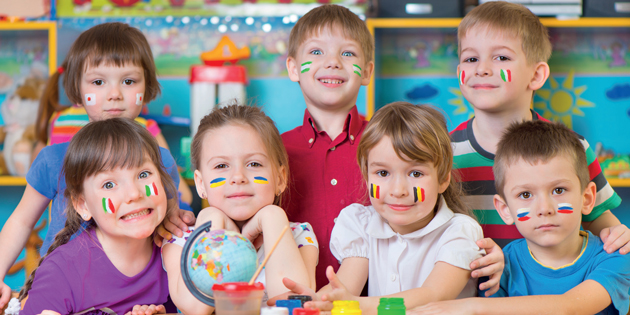Primary Times - the definitive what’s on and where to go family guide of activities and events for children of primary school age. Things to do with your kids during the school holidays including arts and craft activities, music and theatre for children, parties, competitions, days out, and family attractions along with term time drama schools, dance classes, after school clubs and sports activities. Things to do at a place near you!
Learn a new language as a family
 Primary Times explores some of the benefits of language learning and fun ways for the whole family to get involved
Primary Times explores some of the benefits of language learning and fun ways for the whole family to get involved
Calling all budding linguists! If you’ve been considering learning a second language as a family, now’s the perfect time to get started! European Day of Languages takes place on September 26th, an event that celebrates the many different languages spoken across Europe. Dedicated to promoting language learning itself, it’s also a fantastic opportunity to showcase the cultural and linguistic diversity across the continent. What better time is there to start learning?
Many children now study a modern foreign language during their primary school years and into secondary school as well, so it’s great to support them at home with extra practise where you can. As well as the linguistic advantages that are naturally associated with learning an additional language during childhood, being bilingual can have a number of social, educational and personal benefits too…
Why is language learning important for children?
Learning a second language is thought to:
• Improve communication skills and boost empathy for others
• Enhance memory, cognitive reasoning and problem-solving skills
• Improve cultural sensitivity
• Help with creating resilient, determined high achievers
• Open doors to exciting future job prospects and wider career opportunities
How to make language learning fun for little linguists?
Having a go at learning a new language can be hugely rewarding for all ages, so it’s something that the whole family can get involved in.
Try out a language class or join an online learning group
Find your local language centre venue or tuition centre that specialises in teaching foreign languages and have a go at some classes as a family! This is a great way to be hands-on with your learning and also to socialise with others.
Find TV, films, books and music in your chosen target language
Immerse yourself! Read children’s books aloud together in the language you’re learning to add some excitement and challenge. Vivid colours and pictures will hopefully help the new words to stick in your minds. Watch television in your chosen language or sing songs together - the more you’re exposed to the words and sounds, the more familiar it becomes. If you’re enjoying yourselves, you won’t realise you’re learning too!
Listen to podcasts and audiobooks
A fabulous way to learn on the go! Find a family-friendly book or podcast in your chosen language and listen together as you’re on the way to school, on long journeys, or whilst on a family walk.
Host themed family dinner parties
Get creative and experiment with a well-known, traditional dish from the country of your choosing. Try to master some of the basics over dinner and practise saying hello, please, and thank you to each other. Later on, try to cook using a recipe written in French or Spanish for example and see how much you can follow!
Set up a scavenger hunt
Great fun as an indoor or outdoor activity! In your target language, write various everyday household items/objects on sticky notes and challenge your child to translate and then find the corresponding items! One found, repeat the words aloud together. You could incorporate a stopwatch or time limit to make this more exciting. Encourage your child as they gradually get faster at completing the challenge once they better understand what the words mean and begin to develop their vocabulary in the chosen second language.




